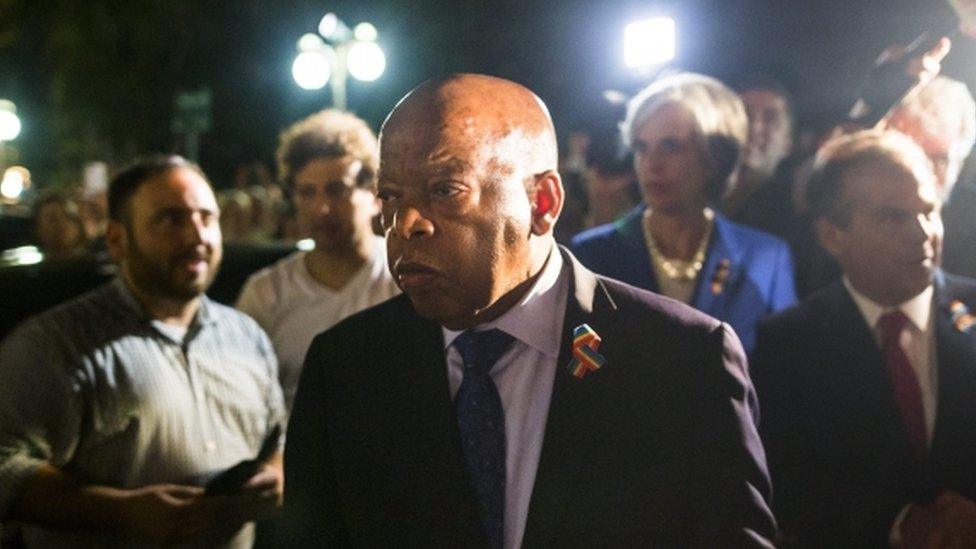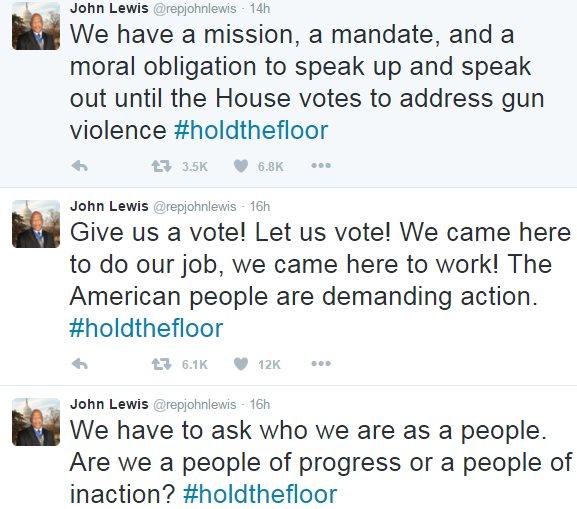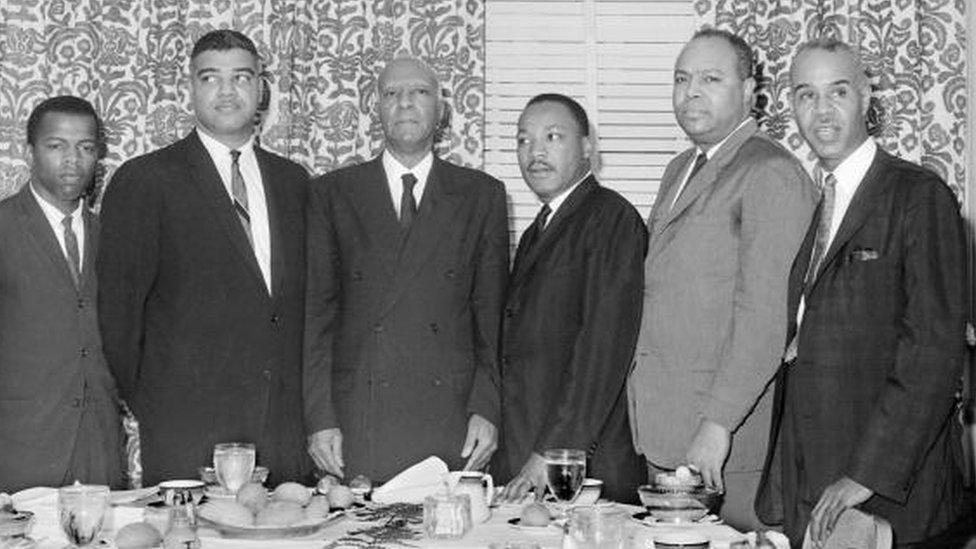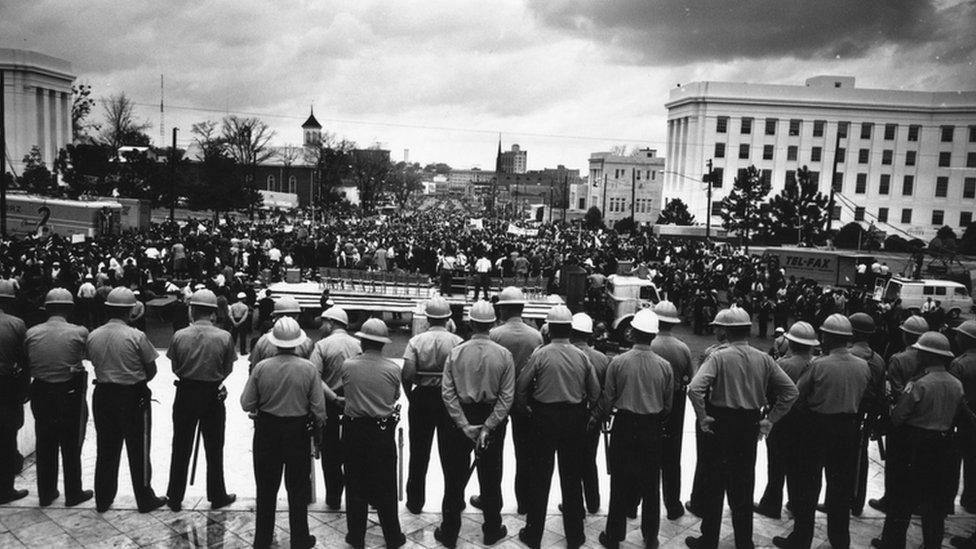John Lewis, gun-control advocate and last of the 'Big Six'
- Published

John Lewis is the last of the "Big Six" civil rights leaders still alive
"Do we have the courage? Do we have the raw courage to at least make a down payment on ending gun violence in America?"
This was one of a series of tweets posted by John Lewis on the day he led a major Democratic Party sit-in protest in Congress in the wake of the shootings in Orlando that left 49 people dead.
The tweets reflected a life dedicated to the philosophy of non-violent activism.
Now the Democratic Party representative of Georgia's 5th District, John Lewis was in the 1960s one of the "Big Six" civil rights leaders, spearheaded by Martin Luther King Jr.
He was the youngest, and, now aged 76, is the last still alive.
At just 21 he was on the Freedom Rides, sitting in bus seats reserved for whites to challenge segregation.

He led the Student Non-violent Co-ordinating Committee and played a key role in the historic March on Washington in August 1963.
Two years later, he was part of the famous Selma to Montgomery marches in Alabama, aimed at securing voting rights.
He and Hosea Williams led 600 marchers across Edmund Pettus Bridge in Selma in March 1965. The protesters were then attacked by Alabama state troopers in a confrontation that sparked national outrage and was dubbed Bloody Sunday.

John Lewis (L), with the other Big Six members, Whitney Young, Philip Randolph, Martin Luther King Jr, James Farmer and Roy Wilkins in 1963

John Lewis took part in the famous Selma to Montgomery marches in Alabama in 1965
John Lewis still bears the scars from being beaten unconscious. He said he thought he was going to die.
He racked up 40 arrests and suffered numerous physical attacks and serious injuries but remained committed to non-violent protest.
He was elected to the House in 1986 and has been re-elected 14 times, falling below 70% of the vote just once.
Congressman Lewis was awarded the highest civilian honour by President Barack Obama, the Medal of Freedom.
John Lewis, Democratic Congressman: "Now is the time to get in the way, the time to act is now"
Aleem Maqbool sets off on the journey from Selma to Montgomery